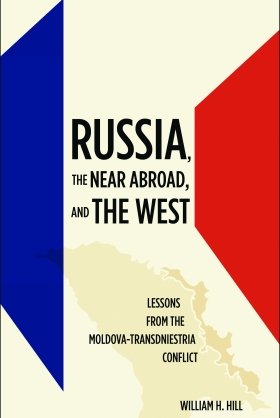Russia, the Near Abroad, and the West: Lessons from the Moldova-Transdniestria Conflict


-
Post-communist Russia turned against the West in the 2000s, losing its earlier eagerness to collaborate with western Europe on economic and security matters and adopting a suspicious and defensive posture. This book, investigating a diplomatic negotiation involving Russia and the formerly Soviet Moldova, explains this dramatic shift in Russian foreign policy.
William H. Hill, himself a participant in the diplomatic encounter, describes a key episode that contributed to Russia’s new attitude: negotiations over the Russian-leaning break-away territory of Transdniestria in Moldova—in which Moldova abandoned a Russian-supported settlement at the last minute under heavy pressure from the West. Hill’s first-hand account provides a unique perspective on historical events as well as information to assist scholars and policymakers to evaluate future scenarios.
When western leaders blocked what they saw as an unworkable settlement in a small, remote post-Soviet state, Kremlin leaders perceived a direct geopolitical challenge on their own turf. This event colored Russia’s interpretations of subsequent western intervention in the region—in Georgia after the Rose Revolution, Ukraine in 2004, Kyrgyzstan, Uzbekistan, and elsewhere throughout the former Soviet empire.
William H. Hill was head of the OSCE Mission to Moldova, charged with negotiating a settlement to the Transdniestria conflict and facilitating withdrawal of Russian forces and arms from Moldova. He is a professor of national security strategy at the National War College and was a public policy scholar at the Woodrow Wilson Center in 2001–2002.
Author
 William H. HillGlobal Fellow;
William H. HillGlobal Fellow;
Former Professor of National Security Strategy, National War College, Washington D.C.Kennan Institute
The Kennan Institute is the premier US center for advanced research on Eurasia and the oldest and largest regional program at the Woodrow Wilson International Center for Scholars. The Kennan Institute is committed to improving American understanding of Russia, Ukraine, Central Asia, the South Caucasus, and the surrounding region through research and exchange. Read more
Browse Insights & AnalysisExplore More
Browse Insights & Analysis



